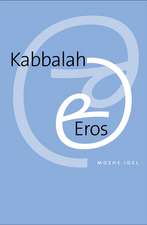John Henry Newman: The Challenge to Evangelical Religion
Autor Frank M. Turneren Limba Engleză Paperback – 22 feb 2011
A provocative reappraisal of a pivotal figure, John Henry Newman also offers an important reconsideration of the religious and intellectual history of the nineteenth century.
One of the most controversial religious figures of the nineteenth century, John Henry Newman (1801–1890) began his career as a priest in the Church of England but converted to the Roman Catholic Church in 1845. He became a cardinal in 1879.
Between 1833 and 1845 Newman, now best known for his autobiographical Apologia Pro Vita Sua and The Idea of a University, was the aggressive leader of the Tractarian Movement within Oxford University. Newman, along with John Keble, Richard Hurrell Froude, and E. B. Pusey, launched an uncompromising battle against the dominance of evangelicalism in early Victorian religious life. By 1845 Newman’s radically outspoken views had earned him censure from Oxford authorities and sharp criticism from the English bishops.
Departing from previous interpretations, Turner portrays Newman as a disruptive and confused schismatic conducting a radical religious experiment. Turner demonstrates that Newman’s passage to Rome largely resulted from family quarrels, thwarted university ambitions, the inability to control his followers, and his desire to live in a community of celibate males.
One of the most controversial religious figures of the nineteenth century, John Henry Newman (1801–1890) began his career as a priest in the Church of England but converted to the Roman Catholic Church in 1845. He became a cardinal in 1879.
Between 1833 and 1845 Newman, now best known for his autobiographical Apologia Pro Vita Sua and The Idea of a University, was the aggressive leader of the Tractarian Movement within Oxford University. Newman, along with John Keble, Richard Hurrell Froude, and E. B. Pusey, launched an uncompromising battle against the dominance of evangelicalism in early Victorian religious life. By 1845 Newman’s radically outspoken views had earned him censure from Oxford authorities and sharp criticism from the English bishops.
Departing from previous interpretations, Turner portrays Newman as a disruptive and confused schismatic conducting a radical religious experiment. Turner demonstrates that Newman’s passage to Rome largely resulted from family quarrels, thwarted university ambitions, the inability to control his followers, and his desire to live in a community of celibate males.
Preț: 443.79 lei
Preț vechi: 576.36 lei
-23% Nou
Puncte Express: 666
Preț estimativ în valută:
84.92€ • 88.84$ • 70.54£
84.92€ • 88.84$ • 70.54£
Carte tipărită la comandă
Livrare economică 03-17 aprilie
Preluare comenzi: 021 569.72.76
Specificații
ISBN-13: 9780300173093
ISBN-10: 0300173091
Pagini: 752
Ilustrații: 14 b-w illus.
Dimensiuni: 149 x 229 x 43 mm
Greutate: 0.94 kg
Editura: Yale University Press
Colecția Yale University Press
ISBN-10: 0300173091
Pagini: 752
Ilustrații: 14 b-w illus.
Dimensiuni: 149 x 229 x 43 mm
Greutate: 0.94 kg
Editura: Yale University Press
Colecția Yale University Press
Notă biografică
Frank M. Turner is John Hay Whitney Professor of History at Yale University and editor of "Apologia Pro Vita Sua" and Six Other Sermons, published by Yale University Press.








